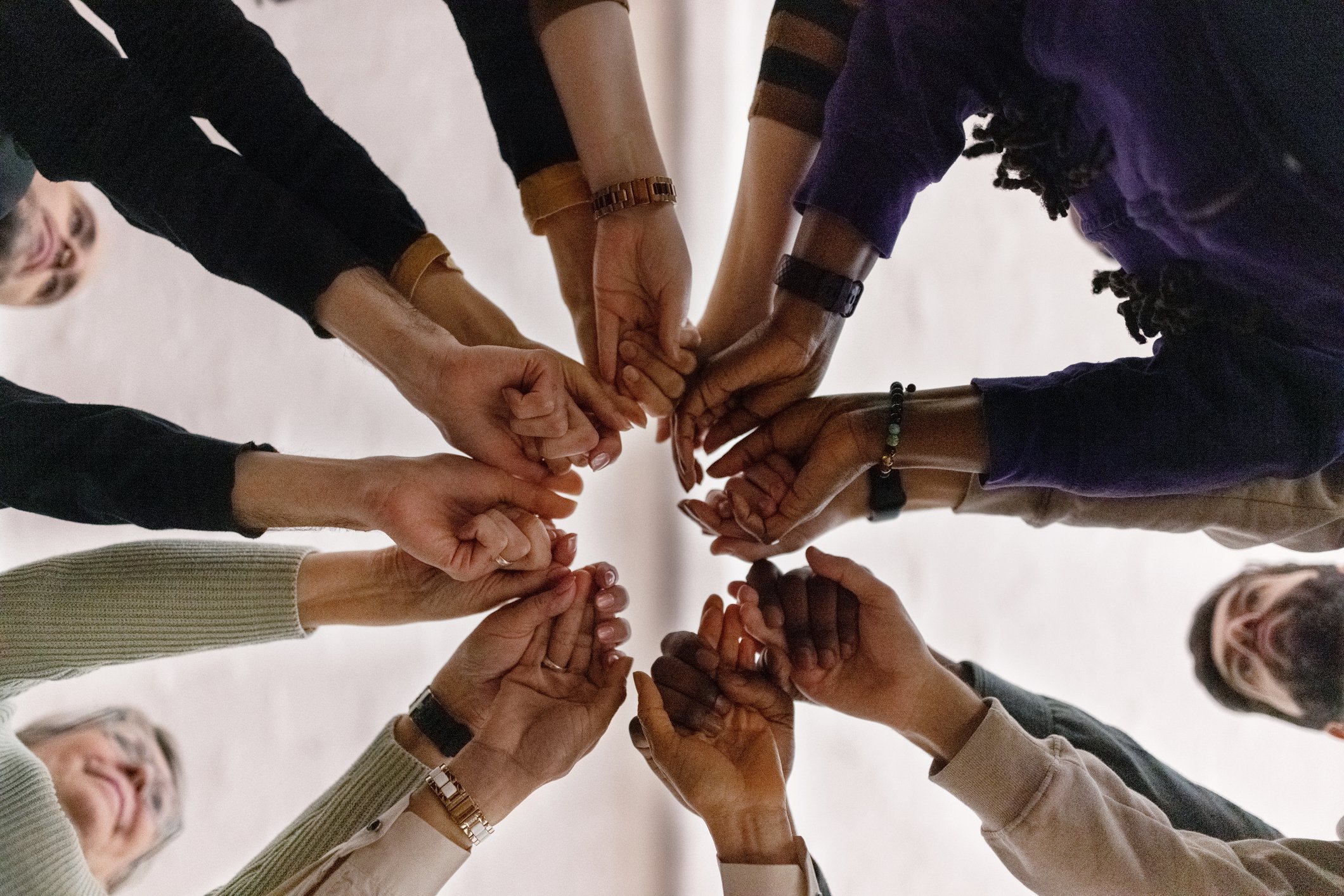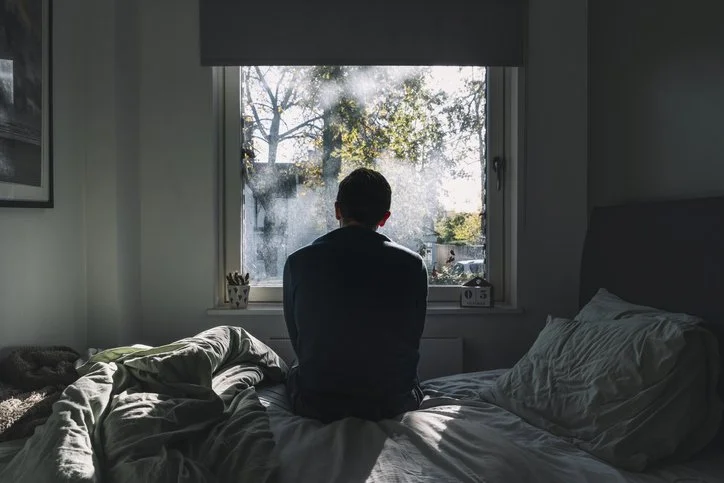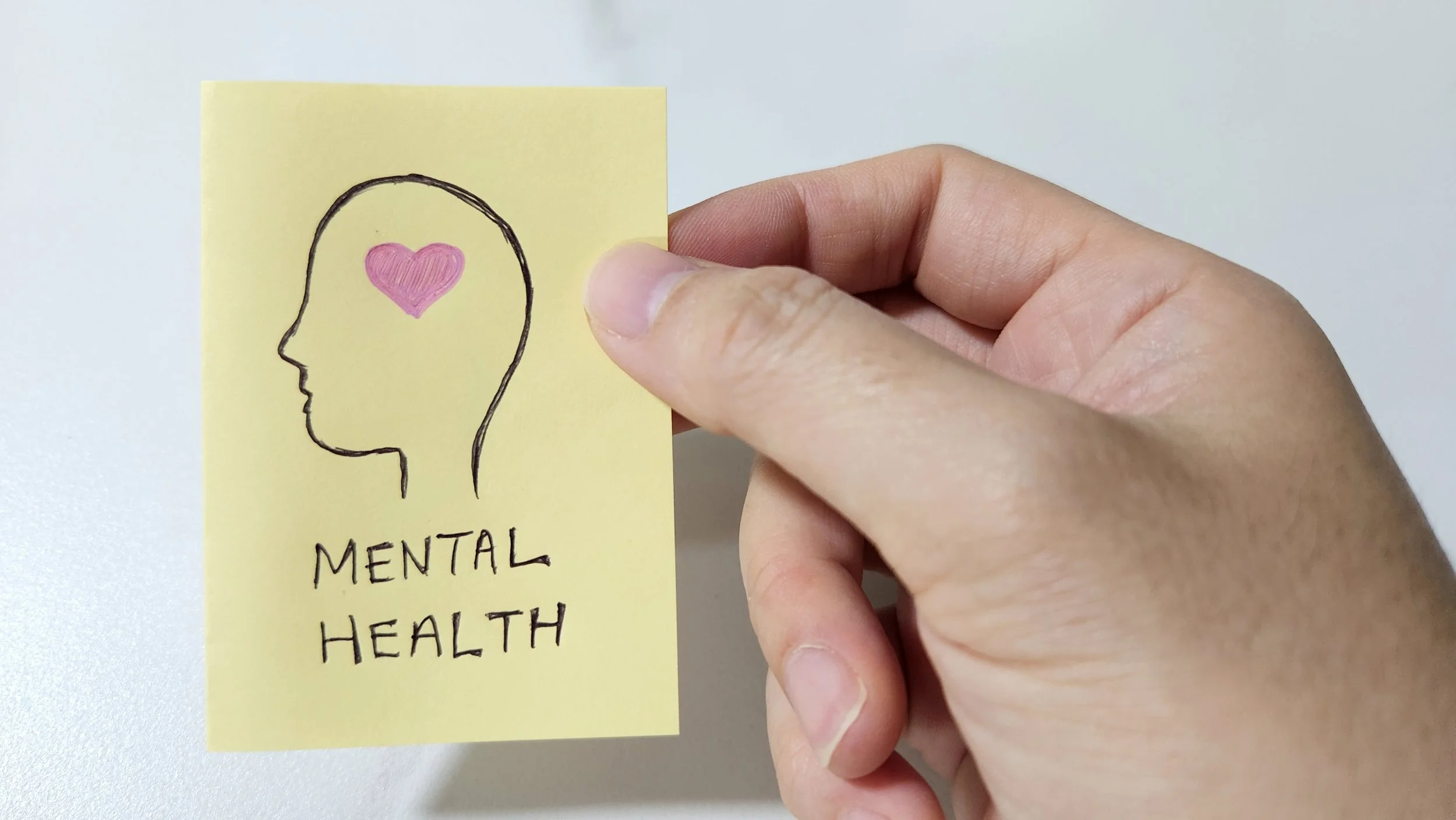Beyond Mental Health Awareness: Real Help for Suicidal Thoughts
By Joy Stephenson-Laws, Holistic Coach, J.D., Founder
Tyra Spaulding could see her suicidal thoughts clearly. The 26-year-old former beauty queen told everyone what was happening.
She died by suicide anyway.
If awareness could prevent suicide, she'd still be alive. So what actually helps?
Let Me Tell You What suicide prevention methods actually help
People throw around statistics like "medication helps 60% of people" as if that's comforting when you're in the 40% - it doesn't help. But here's what I've learned matters more than percentages.
Having one person who actually gets it changes everything. Not twenty friends who say nice things. Not family who panic. Just one person who answers at 3 AM and doesn't freak out when you say you want to die. That person might be your therapist, might be someone from an online support group, might be your neighbor who's been through it. The point is, you need someone who won't make it worse by panicking or preaching.
There's this specific type of therapy called DBT that actually teaches you what to do when you want to die. Not just talking about your childhood for years, but actual skills like dunking your face in ice water when the urge hits. Sounds stupid, works sometimes. Regular talk therapy where you discuss your mother for fifty minutes might not be enough when your brain is actively trying to kill you.
And yeah, medication. Everyone acts like you just take a pill and feel better. Reality is, the first one probably won't work. Or it'll work halfway. Or it'll make you feel like a zombie. Most people have to try three or four different ones, and each trial takes a month to know if it works. That's four months minimum of experimenting while you still want to die. Nobody tells you that part.
When You're Always in Crisis Versus Sometimes Okay
If every single day is hell, if you haven't had a good day in months, forget everything about building awareness or preparing for better times. You need intensive treatment right now. Not next month. Now.
Go to an emergency room and say exactly this: "I have chronic suicidal ideation and need intensive treatment, not just a 72-hour hold." They might offer something called partial hospitalization where you go during the day but sleep at home. Or intensive outpatient, which is like group therapy on steroids—several hours, several times a week. Don't leave the ER without a real plan, not just a list of phone numbers.
But maybe you do have some days where you can think straight. Use them, but don't try to build some perfect system. Find one person who can be your crisis contact and actually tell them what that means. "When I text you the word 'bad,' that means come over or call 911." Write down three things on a piece of paper: who to call, where to go, what helped last time. That's it. Don't overwhelm yourself with elaborate plans you'll never follow.
The Reality of Having Nobody
Some of you reading this are completely alone. Your family thinks depression is weakness or demon possession. You moved for work and know nobody. Years of mental illness drove everyone away. Or you're trans in a hostile town, elderly with no family left, or just deeply isolated for whatever reason.
Your isolation isn't your fault, but it does mean you need different strategies. Make 988 your primary support for now. I know, talking to strangers on a crisis line isn't the same as having someone who knows you. But they're there at 3 AM when nobody else is.
Look into online support groups through NAMI—they're free and you can do them from bed. Some therapists will do sliding scale sessions for twenty bucks if you ask. Some cities have "warm lines" for when you're struggling but not in immediate crisis. It's not fair that you have to cobble together support from strangers, but it's better than nothing.
Getting Help When the System Is Broken
You know what happens when you try to get help? You call ten therapists. Eight never call back. One has a three-month waitlist. One charges $250 per session. So here's what actually works: Send emails instead of calling. Send ten at once, like you're applying for jobs. Someone will respond.
When medication isn't working after multiple tries, ask about genetic testing that shows which meds your body can actually process. Insurance often covers it because it's cheaper than you trying fifteen different pills.
When you go to the ER and they treat you like you're wasting their time, specifically ask for a mental health evaluation and crisis counselor. Use those exact words. Don't just say you're sad.
When insurance denies everything, appeal. Have your doctor write letters. Be the annoying patient who won't go away. It's exhausting when you're already exhausted, but sometimes being a pain in the ass gets you treatment.
Religious and Cultural Stuff Nobody Talks About
If your family says you need to pray harder or that antidepressants are for weak Americans, you've got extra barriers. Find therapists who get your background—they exist. Some faiths have counselors who understand both spirituality and actual medical treatment. NAMI has culturally specific support groups where you won't have to explain why your family thinks therapy brings shame.
Online support might be your only option for privacy. That's okay. Your survival matters more than your family's opinions about mental health.
Survival in Real Time
When a sudden urge to die hits, the intensity usually peaks around twenty to thirty minutes. You don't need to be strong forever, just for half an hour. Set a timer. Call someone. Go sit in a McDonald's. Walk around Target. Do literally anything to get through those peak minutes.
When the thoughts are chronic, every day for years, think of them like background noise. You're not trying to achieve perfect silence, just turning the volume down enough to function.
If trauma is part of this, regular therapy might make things worse. You need someone trained in trauma-specific treatment. Ask specifically for EMDR or trauma-focused CBT. Don't let them just have you talk about the trauma over and over—that can retraumatize you.
And if you're using alcohol or drugs to cope, everything's harder. The substances might be keeping you alive short-term but making everything worse long-term. You need treatment for both the addiction and the depression at the same time, what they call dual diagnosis treatment.
What About Actually Getting Better?
I'm not going to promise you'll get better. Some people struggle their whole lives. But here's what's also true—most people who survive a suicide attempt are glad they survived, even if life still sucks sometimes. Treatment helps more people than it doesn't help. Even small improvements can make life bearable instead of unbearable.
The thing is, you won't know if you're someone who gets better unless you stay alive to find out. Maybe you're in the percentage that medication helps. Maybe you'll find the right therapist on the eighth try. Maybe nothing will totally fix it but you'll find ways to live with it, like people live with chronic pain or diabetes.
For People Who Love Someone Who's Suicidal
You can't love someone out of being suicidal, but you can take it seriously when they say they want to die. Take it as seriously as if they said they were having a heart attack. Drive them to appointments. Sit with them during bad nights without trying to fix everything. Check in regularly without needing them to ask. Learn what actually helps them versus what makes it worse—it's different for everyone.
And if they die despite everything you did? That's not your failure. Sometimes mental illness wins. It's not because you didn't love them enough or try hard enough.
The Bottom Line
Tyra saw her thoughts clearly but still died. Maybe nothing could have saved her. Maybe something could have but didn't happen in time. We'll never know.
What we do know is that certain things improve your odds. Medication, even if it takes trying many kinds. Specific therapy for suicidal thoughts, not just general counseling. One reliable person who won't panic. Getting rid of whatever method you're most likely to use. Intensive treatment when outpatient isn't enough.
None of this guarantees survival. But it improves your chances. You don't need to do everything perfectly. You don't need complete awareness or a perfect support system. You just need to stay alive long enough to find what helps you specifically.
Even if that means barely holding on. Even if your only support is strangers online. Even if you're surviving badly rather than recovering beautifully.
Surviving badly is better than dying.
Right now, while you're reading this, save 988 in your phone. Text one person, even if it's just "I need to tell you something." Look up DBT therapists and send a few emails. If you have pills sitting around, give them to someone else to hold.
Don't wait for perfect understanding or complete awareness. Just take one small step toward staying alive. Then another. That's all any of us are doing.
Joy Stephenson-Laws, J.D., is a healthcare attorney with over 40 years of experience championing fairness in the healthcare system. She is the founder of Proactive Health Labs (pH Labs), a national non-profit that now embraces a holistic approach to well-being—body, mind, heart, and spirit. As a certified holistic wellness coach, she helps individuals and families create practical, lasting health strategies. Her own experiences as a mother inspired her to write resources that spark important conversations about safety and wellness.
She is the author of Minerals – The Forgotten Nutrient: Your Secret Weapon for Getting and Staying Healthy.Her children’s book, Secrets That Sparkle (and Secrets That Sting), empowers kids to recognize safe vs. unsafe secrets in a gentle, age-appropriate way.
Her latest book, From Chains to Wings, offers compassionate tools for resilience, healing, and emotional freedom.






